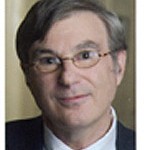Finding Words by Merle Feld, URJ Press, New York; ISBN 978-0-8074-1162-9, ©2010, $14.95, 86 pages.
By Fred Reiss, Ed.D.

WINCHESTER, California — Finding Words by Merle Feld, an award-winning author and playwright, is a book of poetry that pulls at the heartstrings. Feld’s poetry expresses her most intimate feelings on the significance of family and friends. She writes about the vicissitudes of life, reflecting on past loves and losses, together with her own failures and growth.
Occasionally, Feld ruminates on the significance of Jewish holidays and synagogue worship. In fact, she opens with the poem B’reishit (the first Hebrew word of the Book of Genesis, which translates as “in the beginning”). In this poem, Feld describes her emotions as she sits in the synagogue listening to the Torah reader portray how God formed the world out of the chaos. Her poem concludes, “miraculously comes the human/who can strike the match and sanctify/all the work that God has done, eons, ago,/and every moment since,/battling, tohu va-vohu, the chaos”. She comes away from this encounter feeling full of gratitude for life.
Unfortunately, the world for which she is thankful also holds her arch nemesis. In Solstice, Feld is lying in bed intertwined with her beloved, “anchored and warm under old down.” Suddenly, her imagination whisks her into some distant future. Although we do not see Feld’s vision, she tells us, “suddenly, my blood stops./I can feel the platelets piling up.” From this ephemeral vision she concludes, “The enemy is time.”
Time is change, and for Feld change often means loss of friends and loved ones. In the poem, In a small spiral notebook, Feld bemoans, “Anything to numb you from the ever hovering/knowledge that you have to say goodbye,/and say goodbye, and then finally, say goodbye.” In Nearing the end, she ponders how to handle a loss. Should she save a place in her heart? Fill the emptiness? “or, alternatively,/allow the wild grasses/to grow over/the bald spot”?
Some poems in Finding Words are uplifting. In Giddy, she expresses joy that her hundred year old house, whose guests are greeted at the front door by her husband Eddie, is having its windows washed. Writing the poem on the printed page in the shape of a cathedral window she bubbles over, “And then they did it the old fashion way,/by hand,/with rags.” It is in the synagogue, however, that Feld find the most joy. In Passover miracle she tells us, “We become each year once again/the four sons, child like,/…/in search of our freedom/and our God.” Later, in Child of God, Feld unites with the woman who finds “her place at the center/of the prayer room, she sends her roots deep,/tapping pure wellsprings at the core of the earth.”
What does Feld tells us about the world she inhabits? She willingly accepts the joys that life gives her, but the pleasure is fleeting because she all-too-well knows that heartbreak and sadness lay ahead. “I pass through such moments of happiness/unscathed, all the while doggedly clutching/in my tight fists anticipated catastrophes/and the crumbs of tragedies”.
Most of Feld’s poems are written in the first person, and all of them use free-style verse. Although free-style verse lacks a meter on which to rhyme, her poems have a cadence, and what is that tempo? The beating of Merle Feld’s heart.
*
Reiss is a retired public and Hebrew school teacher and administrator. He is the author of The Standard Guide to the Jewish and Civil Calendars; Ancient Secrets of Creation: Sepher Yetzira, the Book that Started Kabbalah, Revealed; and Reclaiming the Messiah. The author can be reached through his website, www.fredreissbooks.com.